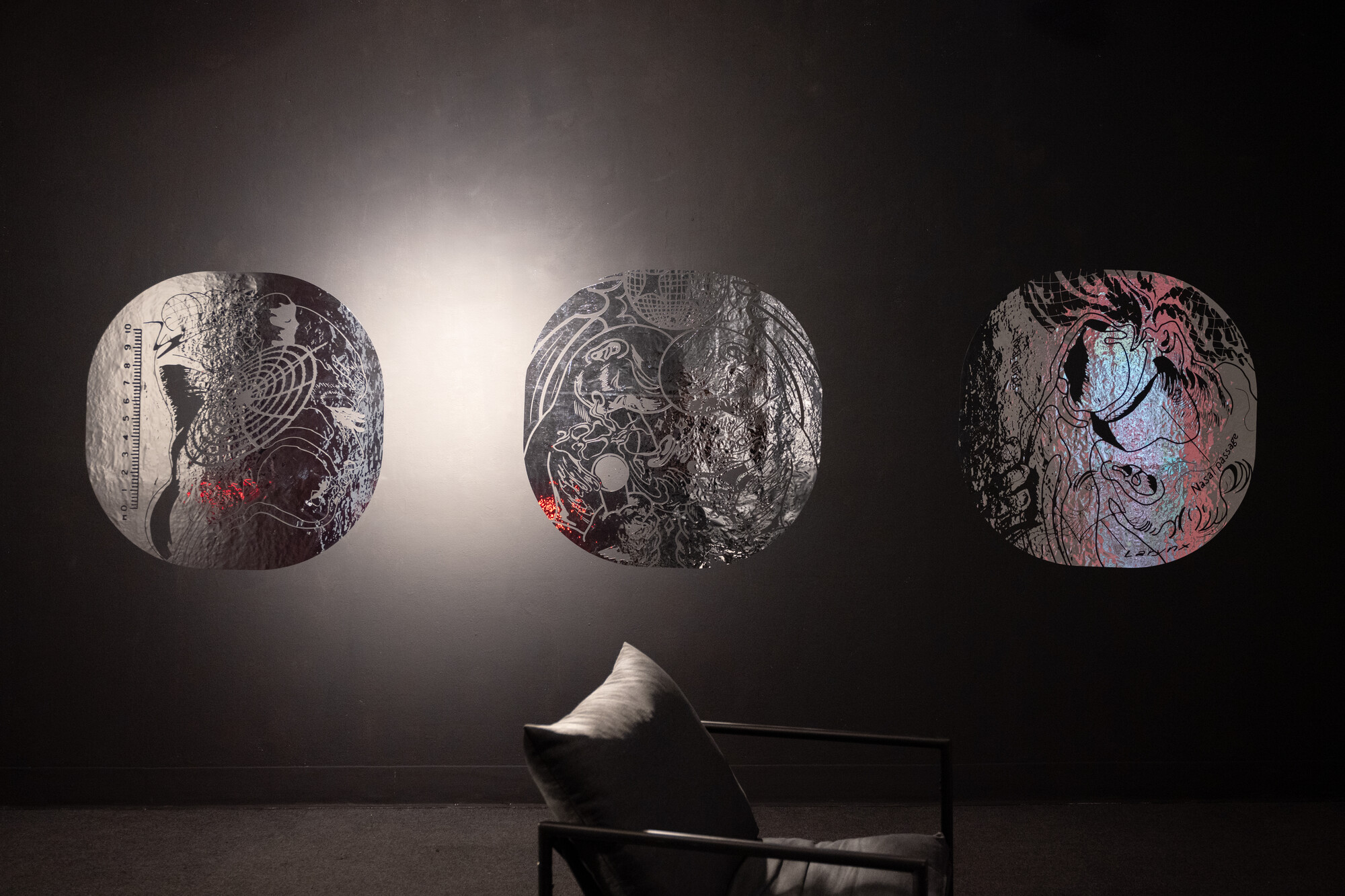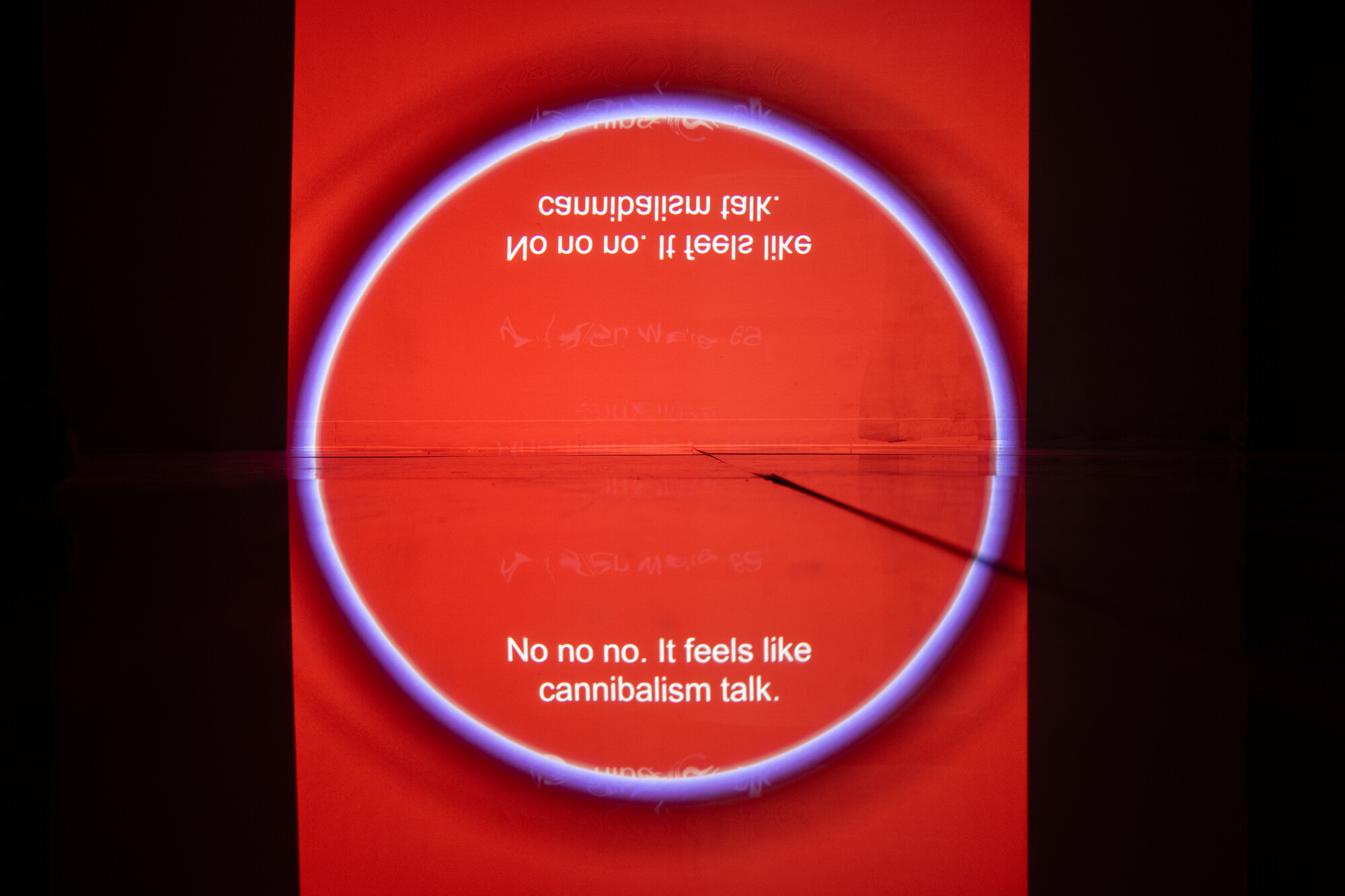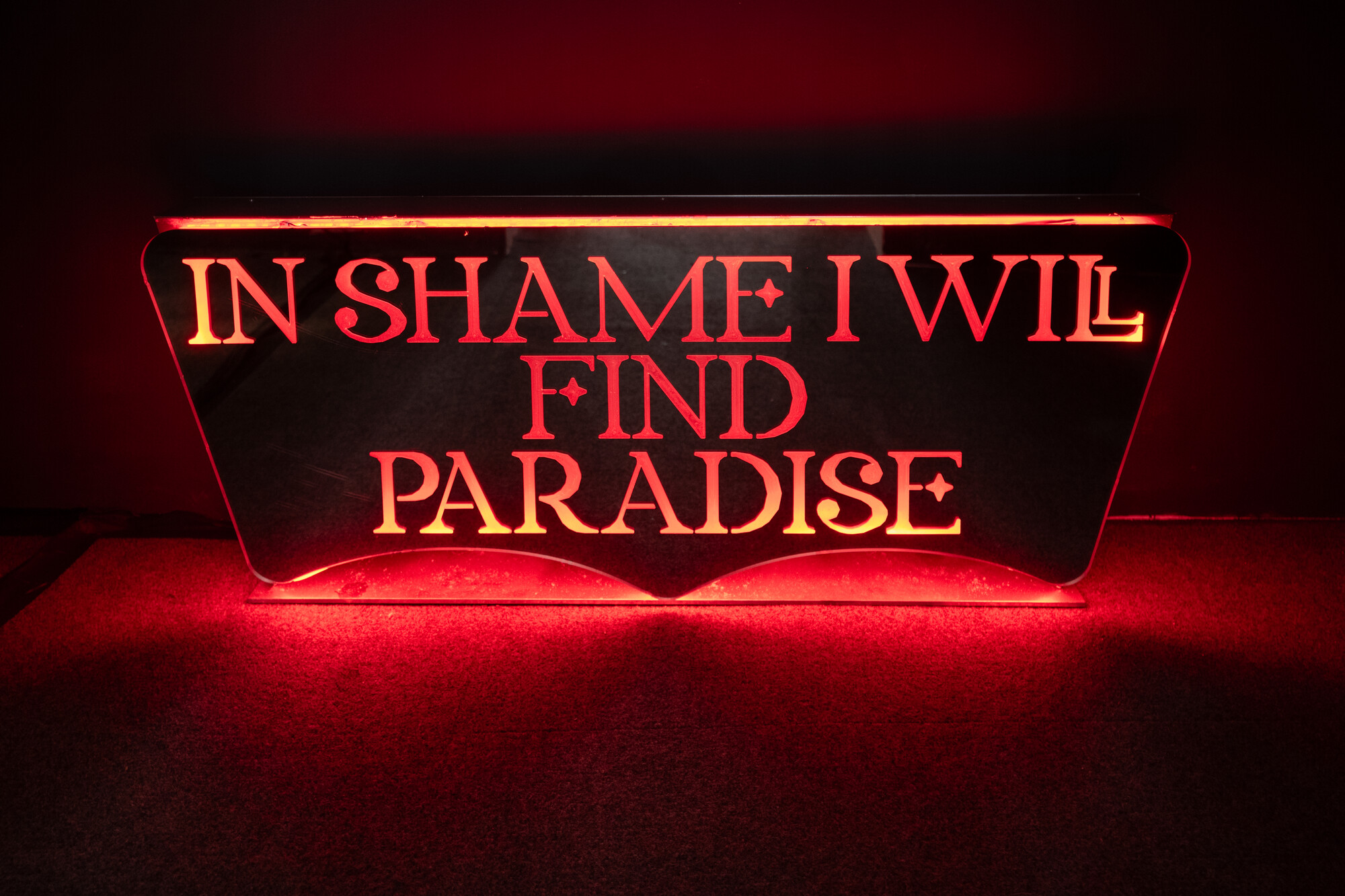As a Korean American non-binary digital artist and designer, my recent explorations have focused on using voice as a medium to articulate nuanced feelings of displacement and the intricate relationships between language, identity, and expression. This journey expands beyond my personal experiences with gender dysphoria, delving into the lives of non-binary and transgender individuals undergoing gender-affirming voice therapy. Through my thesis research, I have developed interactive multimedia installations inspired by dialogues with individuals such as Umico Niwa, who traveled to Korea for voice feminization surgery, and Jeong Yoon Lee from Hyperlink Press, a four-year participant in Hormone Replacement Therapy (HRT). During our conversations, Jeong revealed how a 2000s-era karaoke machine provided him with control over his body and time, enabling him to monitor his voice as it navigated through text prior to his transition. This experience inspired me to create an absurdist visual poetry piece utilizing the broken karaoke machine as a portal to manipulate time and voice, culminating in a multimedia portrait of Jeong.
The discourse surrounding gender-affirming surgery often showcases a limited binary perspective, shaped by a cisgender, heteronormative medical viewpoint. These discussions resonate with my own experiences related to the Korean diaspora, which involve complex issues of language, gender, and nationality. I draw inspiration from avant-garde Korean writers and poets such as Yi Sang and Theresa Hak Kyung Cha, who explored the themes of displacement and erasure experienced by once-colonized cultures through their innovative use of language. Similarly, the transgender community has a vibrant history of playfully exploring and redefining their identities.
Created for Taehee Whang’s MFA Thesis Exhibition hosted at The Anderson in 2024.
Installation Views


